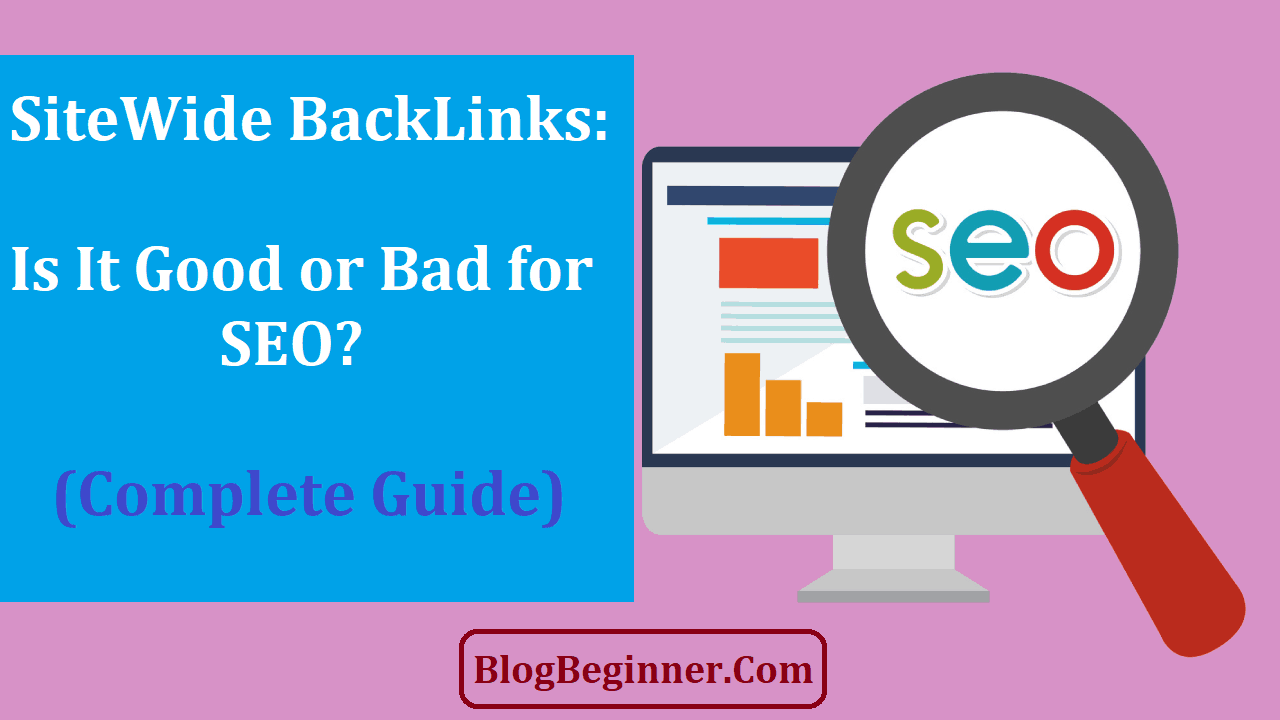
Back in the day, SEO specialists would use what is called sitewide links on their websites.
Sitewide links are links that would appear on all pages of a site; usually they take the form of links in the header, footer, or at the sidebar.
Those days, this method was used for creating easy backlinks.
Pre-penguin update, anyone could, and did, place sitewide links to their sites on other websites, and doing so helped up their ranking on the SERPs.
But those days are gone.
Today, sitewide backlinks are no longer the hot commodity it once was, in fact, using them nowadays can get you into a lot of trouble, if you do not know exactly what you are doing.
After the Penguin update of the Google search engine, creating backlinks needs a bit more effort than before.
Naturally, web devs initially complained about this massive change in the way SEO affects Google, but it did bring a lot of benefits both to the searcher and the websites they are searching for.
After all this, what exactly is the deal with using sitewide links?
Contents In Page
Can you still use sitewide links?
Is there a way you can safely implement it on your own website?
Is sitewide backlinking now bad for SEO, or is it still beneficial?
All these questions will be answered in just a bit.
Why Were Sitewide Backlinks Popular Pre-Penguin?
Back in the days before the Penguin update became the new gatekeeper when it came to creating backlinks, sitewide backlinks were very much the norm when it came to SEO.
First of all, it was incredibly easy to use sitewide backlinks to gain a lot of backlinks in a short amount of time.
Lots of backlinks meant that it was that much easier to use SEO to increase the site’s SERP ranking.
So many websites back then abused the system and they created ways to make other websites to create backlinks to their websites, thus boosting their search engine ranks immensely.
Before the penguin update, creating backlinks focused more on the quantity of links created rather than their quality.
If you wanted to see your SERP ranking go up, you need to create dozens, hundreds, or even thousands of sitewide backlinks; as long as they link back to your site, it does not matter where the link came from, as long as long as it’s there it will count.
This gave rise to various black-hat tactics that were used to create lots of sitewide backlinks, and back then, those websites saw a drastic increase in their SERP rankings.
Google caught on to the sketchy practice of creating sitewide backlinks, so when the company rolled out the Penguin update, those websites that used black-hat practices to create site-wide backlinks suffered from major penalties.
What did the Google Penguin Update do?
The Penguin update attacked the unnatural link building tactics used by black-hat developers.
This meant that different kinds of backlinks that were kind of popular back in the day, now got severe penalties.
The websites that used these now underhanded methods to accumulate backlinks have since dropped quite far down from their previous SERP rankings; some have even been blown deep into oblivion.
Unfortunately, sitewide backlinks were among those that were penalized.
The Google Penguin update scours the web for any backlinks that seems unnatural. For instance, links that are spammy, and those that are unrelated to the website, they are all penalized.
Low-quality backlinks are now taboo
This does not mean that sitewide links are now illegal, they just need to fit into the very specific criteria that the Google Penguin update uses.
There are still certain types of sitewide links that Google considers natural.
This means that you could still put sitewide links on your website, and other webmasters could link to your website too, and there would not be any penalties whatsoever.
Herein lies the question: “If sitewide backlinks are natural and not dangerous, will they still help my website’s optimization?”
In truth, Google pays little, if any, attention to the links located in certain places in your website.
This means, sitewide links are not really that bad, but they are not that beneficial either. So, it will be up to your own discretion if you want to use them or not.
Here are some examples of “natural” sitewide links that you can still use today.
Links to the Copyright and/or Privacy Policy
This is the most common type of sitewide link that you will find in almost all websites.
These links usually appear in a pop-up banner, or right in the footer of the webpage.
This means that you regardless of where you navigate in the website, you will always find these links.
These kinds of links are not only natural, but they are also deemed important elements of a website, so you can be sure that Google will not flag you for using them.
Links to Credit the Website Designer
If you are a website designer, and you ask your new clients to include a small, non-intrusive mention of your services at the footer of their page.
A link where people who are interested in your kind of services can find you. Since this link is unobtrusive, the link is natural and will not incur any penalties from Google.
Links to Other Publications that You Own
If you have other websites, it is only natural that you link them with each other. Do not worry, even the bigger companies do this.
Take for instance a huge news organization that has numerous publications under its belt.
It only makes sense to have sitewide backlinks in all of their sites, like chaining them altogether.
However, there’s a caveat: the sites should at least relate to each other.
For instance, if you own a blog about gaming, and another about gardening, the two cannot be further apart from each other based on their topics, so it makes no sense to link them together.
To answer the question of whether sitewide backlinks are good or bad for SEO, the answer is that it is actually good. However, you do need to be careful of what you use sitewide backlinks for or else you will get a strike from Google and other search engines.







